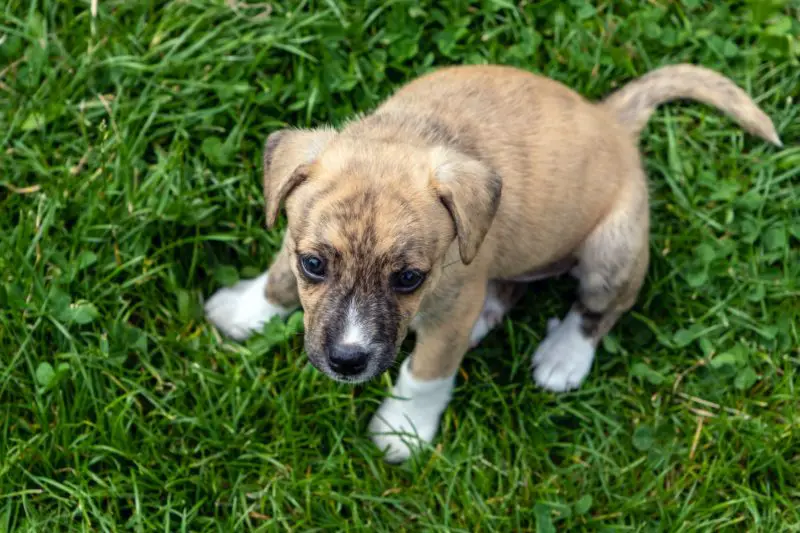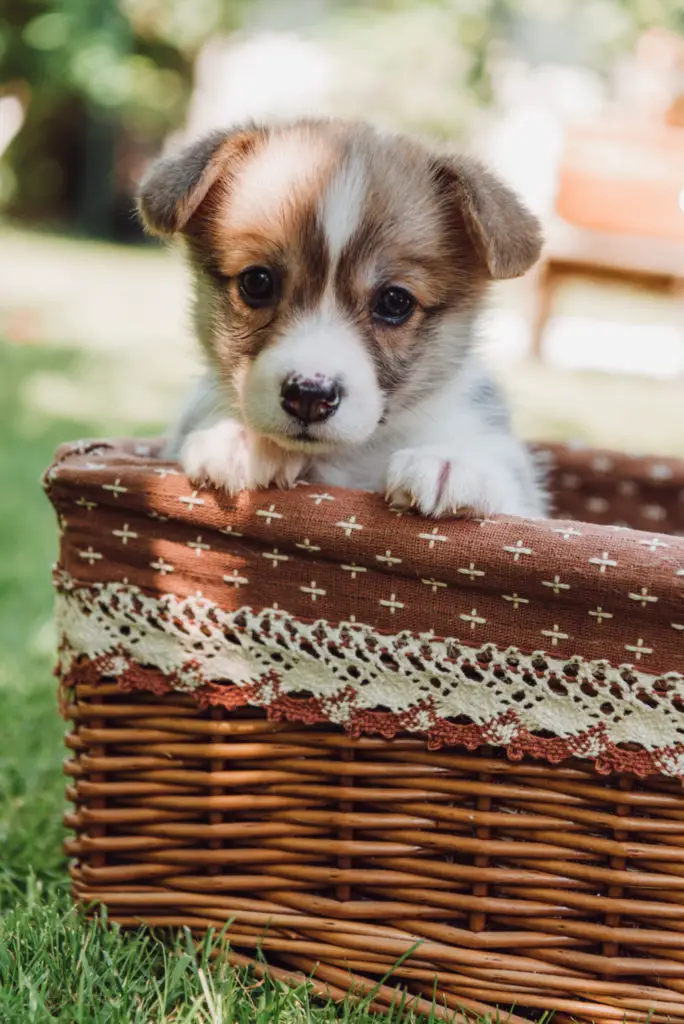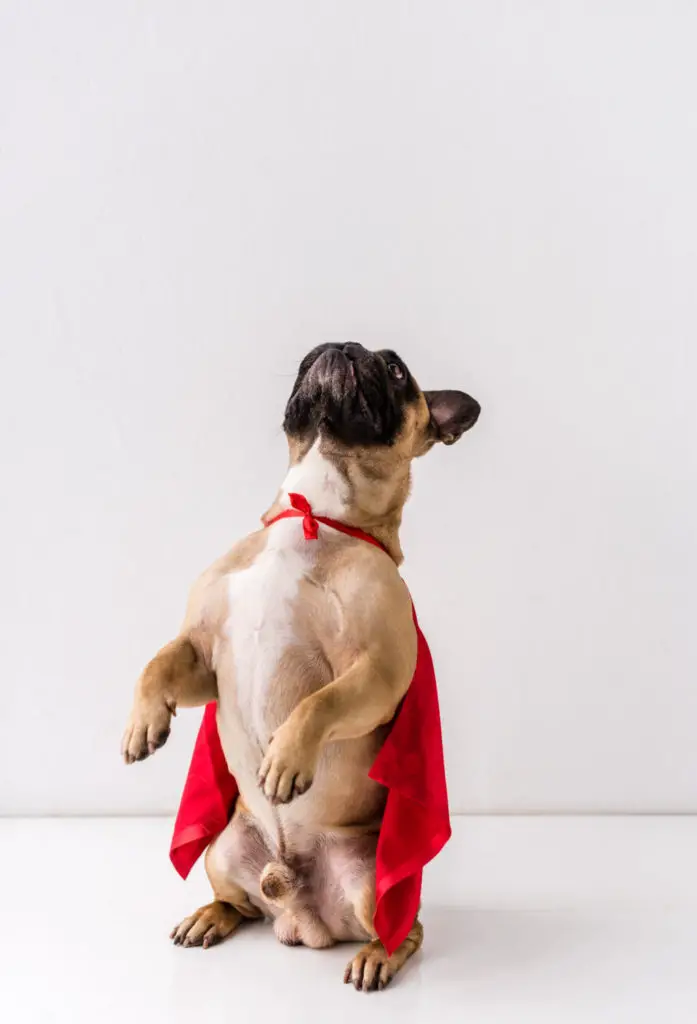How Long Can A Small Dog Hold Its Bladder Overnight?
Dogs can be trained not to pee at night. This will save you from the hassle of taking the dog outside in the middle of the night and ruining your sleep.


But how long can a small dog hold its bladder overnight? Like humans, dogs have varying tolerance when it comes to holding their urine. On average, any dog can hold its bladder for up to 10 hours. Still, you shouldn’t push the dog to its limits because it could lead to health problems. In this post, I discussed how long a dog could hold its pee together with training tips.
How long can a small dog hold its bladder overnight?
A puppy can only hold its bladder for about one hour for every month in age. A healthy dog can hold its bladder for 6 to 8 hours. Although small dogs have smaller bladders, the size of the dog has very little to do with its ability to hold its urine.

The following are the factors that affect how long a dog can hold its bladder:
Age
Puppies, no matter what the breed is, are still developing. This means that their bladder muscles aren’t as strong as adult ones. A one-month-old pup can only hold its bladder for an hour. As puppies get older, they gain muscle control as they age and the time between potty breaks becomes longer. When they are really young it will help to incorporate pee pads into potty training.
The rule of thumb is that dogs can hold their pee for an hour for every month of their age until they reach 8 months. Once your dog is 8 months old, the maximum limit to holding its pee is 8 hours. This is enough for a full night’s sleep.
Other dogs can stretch up to 10 hours, but it’s not good to force your dog to go through this. As with humans, holding its bladder for too long can lead to urinary problems. please read here why does my dog stretch so much.
Also, senior dogs tend to have poor control over their bladder. Many can’t hold it as long as they used to. It’s best to bring your senior dog outdoors every four hours so it can eliminate properly. This will help eliminate any potential accidents.
Health condition
Aside from age, you also have to factor in the health of the canine. Dogs with urinary problems that cause incontinence make it difficult for them to hold their pee overnight.
Urinary tract infection and diabetes are two of the most common conditions that make dogs pee frequently. Bladder stones, kidney infection, and certain medications will also affect your dog’s ability to hold its urine.
Anxiety
Anxious dogs are more likely to pee out of scheduled potty hours. Their nervousness increases their urge to empty their bladders.

To prevent this at night, you should give your dog a quiet ‘dog cave’ where it can relax and sleep until morning. Please read here how to cure dog anxiety and how long can you leave a thundershirt on a dog.
Seasonal changes
During summer, dogs drink more water due to the heat. Because they don’t sweat, they cool their bodies by panting and urinating. The more your dog drinks, the more it will need to pee. Please read here how to keep a dog cool inside the house.
Oppositely during the winter, your dog will drink and urinate less.
Level of training
How you train your dog will affect how well it can hold its bladder. Dogs won’t learn how to hold their bladder if you’re not going to teach them how to. The next section covers tips that will help prevent accidents in the middle of the night.
Tips for house training your dog to hold its bladder overnight
If your dog is having a hard time holding its bladder overnight, the following tips will help a lot:
Stick to a routine
The first thing you should do is set up consistent potty breaks and create a routine for your dog. Canines are creatures of habit, so they thrive on a specific schedule.
For example, you should bring your dog outside at exactly 6 am every day. After that, the next potty schedule would be at 2 pm or right after your dog’s lunch. And before bedtime, the last potty trip can be around 10 pm. You can also set up a doggy door, so your pet can pee on its own during the day.
Such routines will teach your dog that there’s a specified time for pottying. This will help prevent accidents.
Crate training is the key
Crate training is a necessary process if you want your dog to hold its bladder overnight. In crate training, you teach your dog to sleep inside a cage at night.

This small space mimics a dog’s den in the wild. And since it’s small and enclosed, your dog will feel safe away from predators. It will also help nervous dogs relax.
Crate training should be done slowly and carefully. You should never force or lock your dog inside against its well. Instead, lure it into the crate with food and toys. Allow your dog to sniff and explore the crate without closing or locking the door. You first have to build your dog’ trust that the crate is harmless.
Feeding your dog inside the crate will also work. After some time, try closing the door while your dog eats. If it cries and begs to be let out, open the door right away. Do this repeatedly until your pet can tolerate being inside longer.
Once your dog is fully crate trained, you should use the crate as a sleeping pod for your pet. Dogs don’t soil their sleeping area, so they will be compelled to hold their bladder and poop at night.
Limit water intake at night
Another important thing you should do is limit your dog’s water intake at night. Less drinking means fewer instances of peeing.
You should empty your dog’s water bowl three hours before bedtime. This way, the dog can urinate on its last potty trip before you put it in the crate.
Don’t worry because dogs can go on without water for hours. In the morning after its first potty trip, you can feed the pooch and put back its water supply. Please read here how long can go a dog without water.
Rule out health problems
If your dog keeps peeing at night, you should take it to the vet’s clinic. Your pet might be suffering from a urinary problem or other health issues. It’s important to rule out this aspect so your doggo will receive proper treatment if it’s diagnosed with an illness.
Clean up accident spots
Lastly, always clean up accident spots properly and don’t punish the dog. Ignore the mistake and only provide positive reinforcement when good behavior is shown.
You should use an enzyme cleaner to get rid of all the urine traces on your pet’s accident spot. This will prevent the dog from tracking the area and causing another accident.
What happens if you force a dog to hold its pee for too long?
Forcing your dog to hold its pee for long can have health consequences. If done repeatedly, this will lead to urinary infections as well as the formation of urinary crystals. Over time, your dog can develop kidney stones that will be expensive to remove and treat.
This is the reason why you should always schedule potty trips with your dog. It will prevent accidents and keep your dog healthy.
How long can small dogs hold their poop?
In general, dogs have to defecate once to four times a day. Most pups will go twice a day, but it’s completely normal if your small dog skips a day without pooping. This can happen if you cut back on your dog’s calorie intake.
However, if your dog isn’t pooping for three days, you should bring it to the vet. This isn’t normal, and your pet probably has a blockage that’s stopping it from defecating.
Is it normal for dogs not to pee for 24 hours?
It’s not normal for dogs to go without peeing for 24 hours. This should be a cause of concern for pet owners. The dog may be suffering from urinary problems that require veterinary care.
You shouldn’t wait any longer before taking your dog to the vet. Early intervention will always cost less in terms of vet bills.
Why can’t my dog hold her bladder overnight?
If your dog is having a hard time holding its bladder at night, you should rule out urinary problems first.
However, you should also consider that your dog isn’t properly house trained. If the vet ruled out any health problem, you should brush up with the dog’s potty training. You should also come up with a schedule so your dog will get used to holding its bladder.
How long can dogs hold their pee overnight?
Regardless of size, all fully matured dogs are capable of holding their pee overnight.
Conclusion
How long can a small dog hold its bladder overnight? For the most part, the dog’s size has nothing to do with the canine’s ability to hold its pee. Age, health, and training will dictate your dog’s ability to hold it through the night. And no matter how long your dog can go without relieving itself, you shouldn’t push it to the limits.
